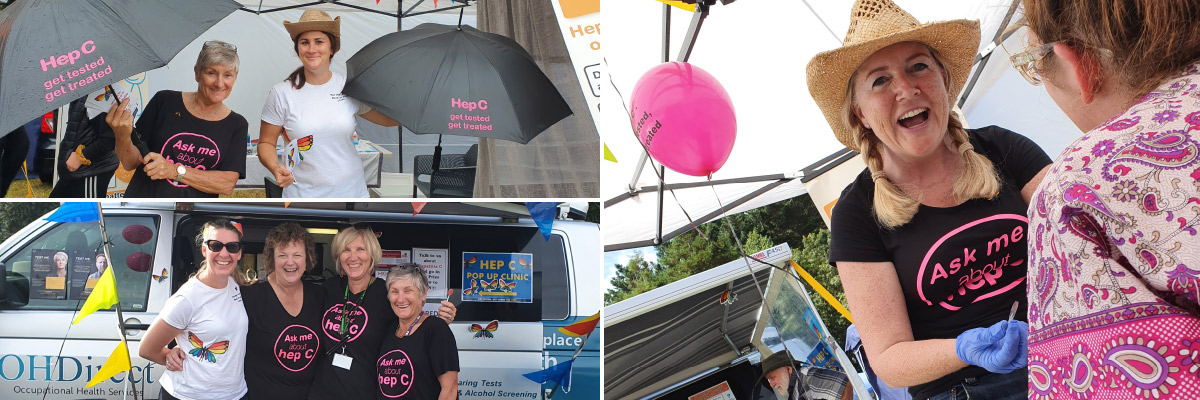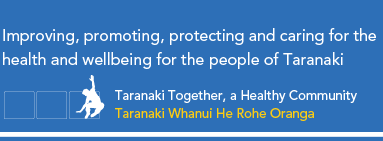
Hepatitis C
What is Hepatitis C?
Hepatitis C is a viral infection which is spread through blood-to-blood contact and affects the liver. It can lead to inflammation, liver cancer and liver failure if left untreated.
It is estimated that about 45,000 New Zealanders currently have the hepatitis C virus and only half have been diagnosed. This is because hepatitis C can remain asymptomatic for decades.
The biggest challenge with this silent viral killer is to find those people who don’t know they have the disease and get them treated and cured.
Who is at increased risk of hepatitis C?
Hepatitis C is transmitted by blood-to-blood activities that pierce the skin. You may be at increased risk if you have:
- ever injected drugs
- ever received a tattoo or body piercing using unsterile equipment
- had a blood transfusion before 1992
- ever lived or received medical treatment in a high-risk country (South East Asia, Eastern Europe, Indian subcontinent and Middle East)
- ever been in prison
- been born to a mother living with hepatitis C or lived with someone who has had hepatitis C
The most common way of getting hepatitis C is through activities related to intravenous drug use. So if you have ever injected, even if it was only once back in the day, you should get tested.
Health professionals who have come in contact with infected blood will also be at risk and should get tested.
It does not matter how you got Hep C. What is important is getting cured so can get on with your life.
What are the symptoms?
If you have hepatitis C, you may have:
- unusual tiredness or fatigue
- joint pain
- loss of appetite
- nausea
- abdominal pain.
Many people with hepatitis C have no symptoms. A blood test will confirm whether or not you have hepatitis C.
Can hepatitis C be treated?
There is no vaccine, however, the virus can be cured within eight weeks with treatment that is easy to take.
PHARMAC is funding a new hep C treatment, Maviret, which is FREE and has the potential to cure more than 98% of infections.
Hepatitis C Pop-up testing clinics

Over a thousand finger prick tests have been completed at more than 20 different venues and events including Americarna, A&P shows, Sir Pomare Day and Urenui Rodeo. Through this we have found, treated and cured a number of people with Hepatitis C.
Taranaki Hepatitis C Action Network
Te Whatu Ora Taranaki is committed to eradicating Hepatitis C virus from the Taranaki community by 2030.This is a global commitment and part of a World Health Organisation (WHO) goal.
Since 2018, The Taranaki Hepatitis C Action Network, a multisector group of health partners from primary, secondary and community care services, has been working to Find, Test, Treat and Cure people living in the Taranaki community.
Part of this work is holding pop-up testing clinics at a large range of venues to support raising awareness about this virus.
For more information or request for a pop-up clinic contact:
Rebecca.laidlaw@tdhb.org.nz
Community health service – Te Manawa Taki (Midland) Community Hepatitis C Service
Te Manawa Taki Community Hepatitis C Service is a FREE mobile service covering the five Midland Regions.
The service uses a ‘one stop shop’ approach to reduce patient visits within the health sector. Clinics are held in the community, so those with hepatitis C feel comfortable attending. Locations may include needle exchanges and community centres.
The Te Manawa Taki Community Hepatitis C Service provides education to communities and providers; instant FREE testing to see if you have been exposed to hepatitis C, a FibroScan, which measures liver stiffness if needed. You can even be treated for free via the service.
Contact us:
Confidential chat on 0800 195 115
Te Whatu Ora Taranaki Hepatology service
This service is for people who may have advanced liver disease or cirrhosis from hepatitis. People with advanced liver disease from hep C can still be treated but will require long term surveillance follow up. Specialist liver doctors and nurses will organize regular monitoring with ultrasound imaging and blood tests.
Gastroenterologists together with hepatology nurse support the liver care in these cases.
Contact:
Hepatology.CNS@tdhb.org.nz
Hepatitis C National Action Plan
This action plan was launched on World Hepatitis Day 2021 and will guide the health sector and services working in hepatitis prevention or treatment. It provides a framework for working towards the World Health Organization’s (WHO’s) goal to eliminate viral hepatitis by 2030.
This National Hepatitis C Action Plan will focus on improving equitable health outcomes for all New Zealanders living with hepatitis C, and on advancing the health aspirations of Māori, consistent with the Treaty of Waitangi obligations.
Priority groups are those living with hepatitis C or who are at high risk of developing chronic hepatitis C and the serious long-term complications of infection. In New Zealand this includes people who currently inject drugs, and others living with hepatitis C.
The priority settings for this action plan are needle exchanges, prisons, primary and community care services, and alcohol and other drug services.
The activities outlined in this action plan are grouped into five focus areas that will contribute to the overarching goal to eliminate viral hepatitis as a public health threat by 2030:
• awareness and understanding
• prevention and harm reduction
• testing and screening
• surveillance and monitoring
• integration and access to care.
The Ministry of Health will phase delivery of the activities specified in this action plan. An implementation plan will provide a road map for the first phase of work, to be undertaken between 2021 and 2025.
For more information:
https://www.health.govt.nz/publication/national-hepatitis-c-action-plan-aotearoa-new-zealand-mahere-mahi-mo-te-ate-kaka-c
Hepatitis B
Hepatitis B is also a contagious virus that affects the liver. It is passed on through close contact with blood and other body fluids from an infected person, eg, from cuts and scratches, sharing toothbrushes, and sex without a condom.
Hepatitis B can also be passed on from pregnant women to their babies, usually at birth. If you're pregnant and have hepatitis B, your baby can be given special antibodies to protect them.
There is no specific treatment for hepatitis B. In most cases, your immune system will clear the infection.
Immunisation against Hepatitis B
All children in New Zealand can be immunised against hepatitis B as part of their free childhood immunisations at 6 weeks, 3 months and 5 months old.
For more information:
www.health.govt.nz/your-health/conditions-and-treatments/diseases-and-illnesses/hepatitis-b
www.hepatitisfoundation.org.nz/
Last updated: Tuesday, July 20, 2021



